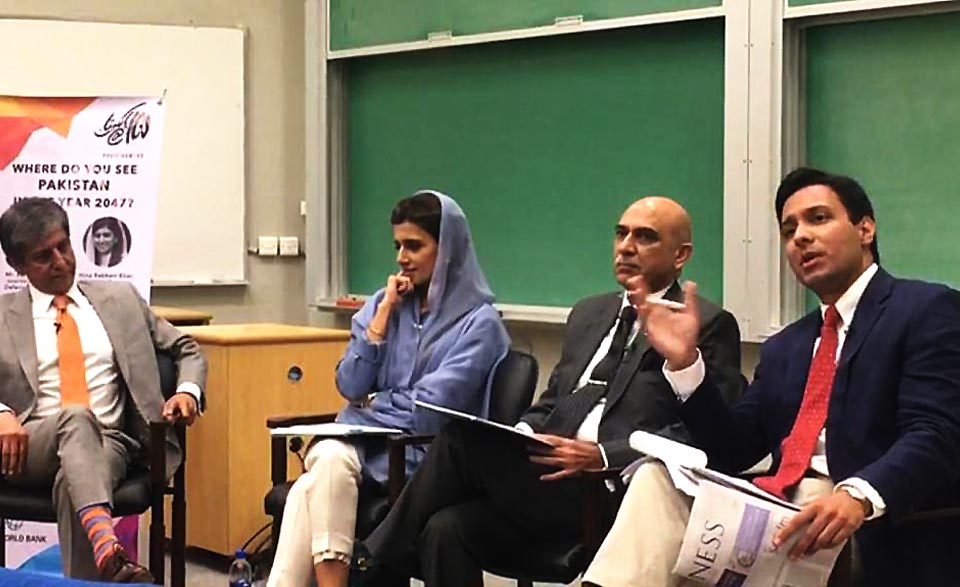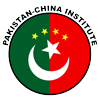Mustafa Hyder Sayed talks about the role of CPEC on the future of Pakistan
Source : PCI Date : 12-10-2018
 |
|
|
The Executive Director of PCI, Mr Mustafa Hyder Sayed, talked about the role of the China-Pakistan Economic Corridor (CPEC) and the Belt and Road Initiative (BRI), for the future of Pakistan. While speaking at a panel discussion titled "The Pak-100 conference: Where do you see Pakistan in 2047" held at the Lahore University of Management Sciences (LUMS), he talked about the numerous benefits of CPEC in the energy and infrastructure sectors, and specifically talked about the role of Special Economic Zones in shaping Pakistan's future. Other panelists included ex-Foreign Minister, Ms Hina Rabbani Khar, ex-Chief of General Staff, Lt Gen (R) Waheed Arshad and Mr Ejaz Haider, journalist and defense analyst.
Lahore, October 12th, 2018: The Executive Director of Pakistan-China Institute, Mr. Mustafa Hyder Sayed, was invited to speak as a distinguished speaker at a panel discussion held on Friday the 12th of October, jointed hosted by the World Bank and the Lahore University of Management Sciences, held at the university premises. The event was titled: ‘The Pak100 conference: Where do you see Pakistan in 2047?’ with a specialized discussion on the future of Pakistan’s neighborhood. The panelists for this discussion included ex-Chief of General Staff (CGS) Lieutenant General (R) Waheed Arshad, MNA and ex-foreign minister Ms. Hina Rabbani Khar and Mr. Ejaz Haider, journalist and defense analyst.
Mr. Mustafa Sayed talked specifically about what regional cooperation and the political and economic landscape of the region will look like within the framework of, and with the advent and progress of the flagship project of the Belt and Road Initiative, the China-Pakistan Economic Corridor. He brought to attention the numerous benefits to Pakistan in the long run that will outweigh any immediate problems quoted with regard to China Pakistan Economic Corridor (CPEC). He particularly mentioned benefits to the manufacturing sector with the creation of Special Economic Zones, and massive job creation as a result. “The SEZs will serve as an engine to get us out of balance of payments crisis to increase our exports. The Rashakai SEZ and the Hattar SEZ all have inputs from local industries of KPK. To make it a resounding success, we need due diligence on the feasibility of these SEZs.” He also pointed out the importance of infrastructure financing for the long-term socio-economic growth of the country. He clarified concerns regarding Chinese debt and unfair terms of business, and agreed to the need of environmental standards and transparency with all projects Pakistan undertakes in the future.
Other speakers also provided key inputs in addressing Pakistan’s needs for the future. Lt Gen Waheed Arshad said, “We have to better our internal security to put the investment on the right track. Our country will benefit from CPEC if we have a regional connectivity framework.”
Ms Hina Rabbani Khar, who has extensive experience as she served as the Foreign Minister of the country, said that our approach to the region has to change since the regional dynamics are changing day by day. She further focused on the need to invest in renewable energy and technology for the future for 2047.
Mr Ejaz Haider, a renowned journalist and defence analyst, talked about the importance of civil supremacy for the country’s future. He said “It is the view of civilian principles that has to prevail but frankly that has not happened.” He further talked about the future of Pakistan-China relations in the context of 2047, saying that Pakistan-China relations also need to be studied structurally rather than with regality.
The event was attended by students from LUMS, with highly interactive discussions taking place at the end of the session.
